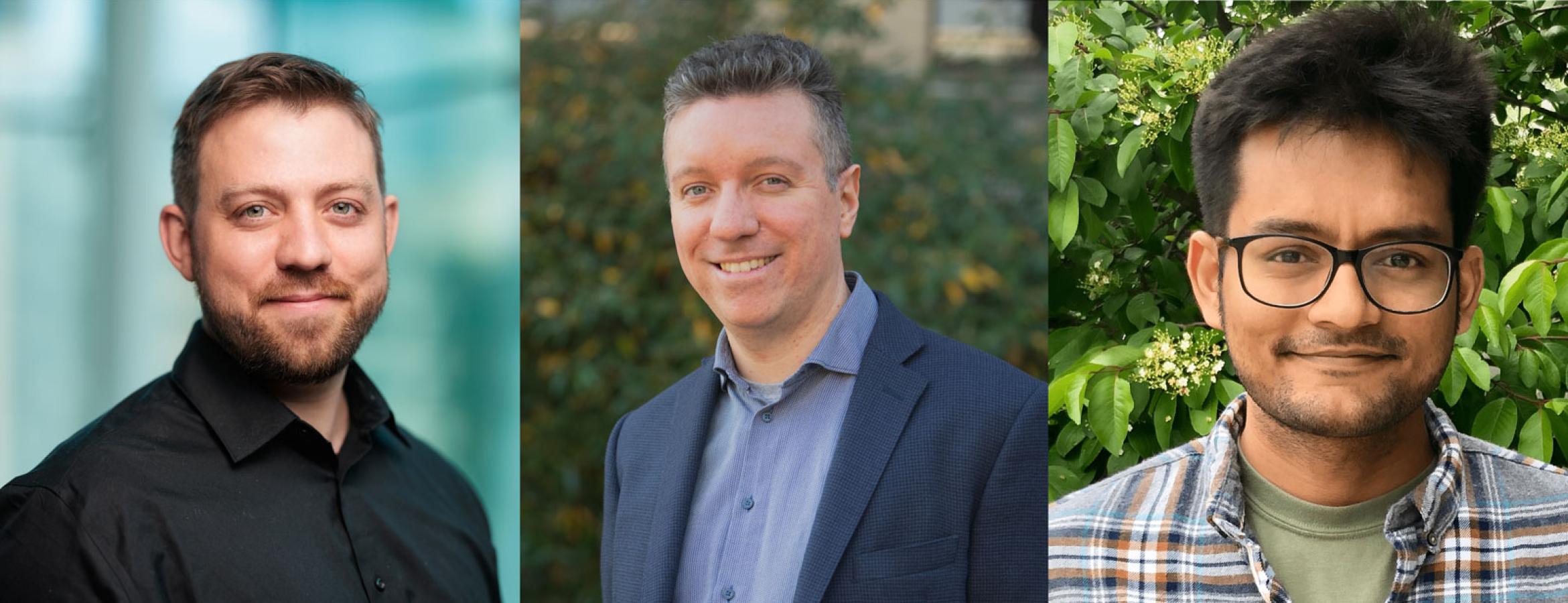The Charles E. Kaufman Foundation—a supporting organization of The Pittsburgh Foundation, which works to improve the quality of life in the Pittsburgh region—has selected three Penn State researchers to receive scientific research grants. The foundation awards grants to scientists at institutes of higher learning in Pennsylvania who are conducting innovative, fundamental scientific research in the fields of biology, chemistry and physics.
Goal-directed brain function
Grayson Sipe, assistant professor of biology, was selected to receive a New Investigator grant for his project titled “Astrocyte-neuron dynamics underlying functional sensory shifts during locomotion.” New Investigator grants empower early career scientists to address fundamental questions through novel approaches with the potential for generating transformative intellectual advances.
Sipe will study non-neuronal brain cells called astrocytes and their role in sensory processing. He will specifically study how astrocytes may change visual encoding when an animal is moving. He will simultaneously image astrocyte and neuron activity in the brains of mice during a virtual reality task where they move toward a desirable environment, called approach, and move away from undesirable environments, called avoidance. The research addresses a largely ignored question in neuroscience and could enhance understanding of changes in sensory processing during goal-directed actions.
Black hole collisions
David Radice, associate professor of physics and of astronomy and astrophysics, and Romit Maulik, assistant professor of information sciences and technology, were selected to receive a New Initiatives grant for their project titled “Black hole tomography with gravitational waves and artificial intelligence.” New Initiative grants support the collaboration of investigators with strong research records to develop interdisciplinary, novel approaches to address fundamental scientific questions that require expertise beyond that of any single researcher.
Radice and Maulik will study the space around merging black holes, with the goal of answering fundamental questions about black holes, gravity, and Einstein’s Theory of General Relativity. The collision of black holes results in ripples in space-time known as gravitational waves that can be detected by sensitive instruments on Earth, including the Laser Interferometer Gravitational-Wave (LIGO) observatory. The researchers will combine data from LIGO with advance simulations and artificial intelligence, which may have important implications for understanding the universe.
